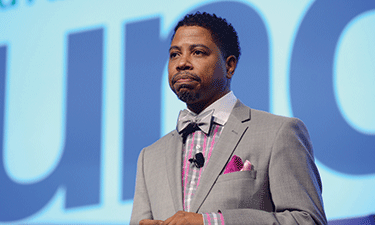 On the heels of an energizing Congress and the thoughtful leadership of our Board of Directors and Past Chair Robert Ashcraft, it is truly an honor to be in this space of service and to be a participant in propelling our movement forward.
On the heels of an energizing Congress and the thoughtful leadership of our Board of Directors and Past Chair Robert Ashcraft, it is truly an honor to be in this space of service and to be a participant in propelling our movement forward.
Our association has a great strategic foundation in our Three Pillars — Conservation, Health and Wellness, and Social Equity. Although the first two pillars are generally widely understood and accepted, when it comes to defining Social Equity into policy and programmatic actions, the interpretation of what that looks like becomes vague at best. As a profession having a great influence on and responsibility to the quality of life in our communities, it becomes incumbent upon us to get into the space where we feel comfortable identifying and addressing the tough and socially conscious issues we face.
Our work mandates that we assist in the creation of an environment that promotes diversity and values individual differences in the area of leisure services, whether it be gender, race, national origin, sexual orientation or religion. If we are to remain relevant and address the “tough” issues that most people tend to dance around, then we need to be willing to address those issues. Based upon the numerous discussions and wide range of responses around how the Social Equity pillar was presented in Charlotte, it appears that we have a solid foundation in fostering the conversation.
Understanding the dialogue that has been generated, social equity can be defined in myriad ways and means different things to different people, but what does it mean in the context of our association and the communities that we all serve? How do we, as leisure professionals, transfer the idea of social equity into an action plan? Although uncomfortable for many, this is a conversation we must have if we are going to move forward with and advance our mission.
In NRPA’s 2014-2016 Strategic Plan, the goal states: “Agencies are foundational in ensuring social equity and access to park and recreation experiences,” and it goes on to provide objectives in the areas of awareness, research, education and advocacy. We have the road map, and it is now our responsibility to continue identifying specific actions in support of this pillar.
Human culture holds a high standard of equity and justice in relationship to people and their communities. In a sustainable community, people honor and uphold the well-being of the entire community.
Detrick L. Stanford, CPRP, is the Chair of the NRPA Board of Directors.

